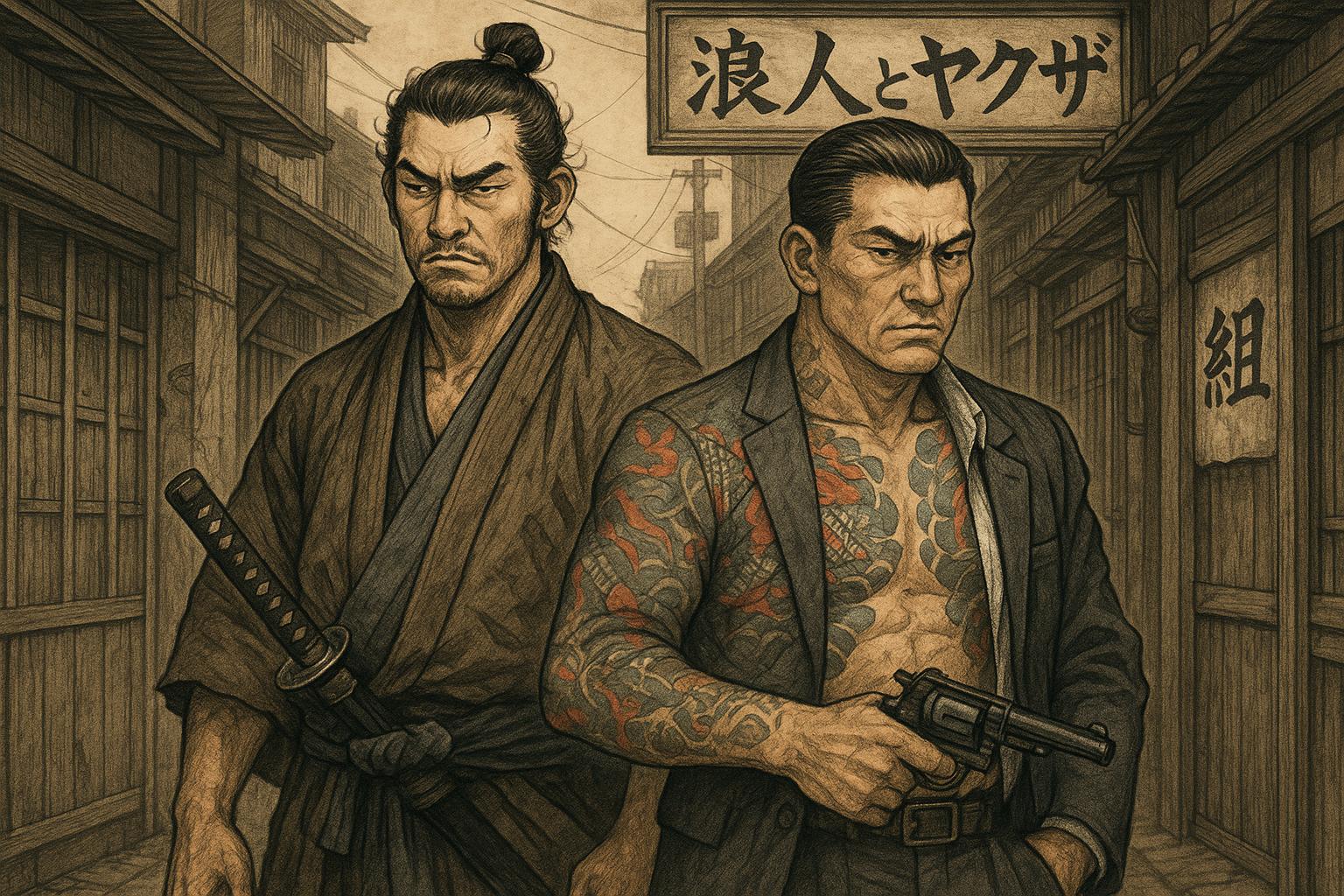Ronins: A Historical Background
In the context of Japanese history, a ronin refers to a samurai without a master. Traditionally, samurais served the daimyo, who were powerful feudal lords. When a samurai’s master lost power or was killed, the samurai became a ronin. This status was often looked down upon because it was seen as a failure to fulfill the social obligations expected of samurai.
Transition from Samurai to Ronin
During the Edo period (1603-1868), strict social hierarchies were enforced, and a samurai’s loyalty to his daimyo was of paramount importance. As wars decreased and the political landscape stabilized, there was less need for samurai as warriors, leading more of them to become ronin. Consequently, these masterless samurai often struggled to find new roles in society.
The Changing Roles of Ronins in Society
As the political and social landscapes changed during the Edo period, the role of the ronin also began to evolve. These samurai, who once served their lords with dedication, often found themselves in a precarious position. They were expected to adhere to the ideals of bushido, the way of the warrior, which stressed loyalty, honor, and discipline. Yet, without a master to serve, achieving such ideals was exceptionally challenging.
The role of ronins extended beyond being merely unemployed samurai. Many took on various forms of employment to sustain themselves and their families. Some became mercenaries, offering their martial talents to those who could afford them. Others engaged in teaching, passing on the martial arts and the philosophies of the samurai to new generations.
The Yakuza: An Overview
The yakuza are organized crime syndicates in Japan, with historical roots going back several centuries. Emerging from groups of displaced samurai, gamblers, and peddlers during the Tokugawa shogunate, the yakuza have evolved into complex organizations known for their rigid structure and code of conduct. These criminal networks engage in various illegal activities, including gambling, drug trafficking, and extortion.
Connection Between Ronins and the Yakuza
The relationship between ronins and the yakuza is a topic of great interest for historians and researchers. Over the years, anecdotal evidence and historical documentation have suggested that some ronins, due to their martial skills and need for livelihood, found their way into the ranks of what would eventually become the yakuza. This transition was facilitated by socio-economic factors and the flexibility of roles within yakuza organizations that could accommodate the unique skills of former samurais.
Another contributing factor to this transition was the lack of legal employment opportunities for masterless samurai. The skills they had acquired as samurai, such as combat expertise, discipline, and strategic thinking, were often incompatible with the needs of a society in peacetime. As a result, some ronins found themselves drawn to the security and lucrative, albeit illegal, opportunities offered by yakuza organizations.
Cultural Depictions and Misconceptions
Popular media often romanticizes the link between ronin and yakuza, presenting it as a natural progression for masterless samurai seeking honor and survival. While there might be grains of truth in this narrative, it is crucial to differentiate between historical facts and fictional portrayals. The intertwining of these groups’ histories is complex and shaped by multiple factors beyond the mere needs for survival and employment.
One common misconception is the portrayal of ronins as heroic figures who invariably join yakuza groups to continue living by the samurai code. While some did gravitate towards these criminal organizations, many struggled to maintain their integrity in a world that no longer had use for their traditional skills. They faced a society that often viewed them with suspicion or disdain, making it difficult to find a legitimate place within the existing social structure.
Additionally, while ronins and the yakuza may have shared some cultural and historical contexts, their goals and values differed significantly. Ronins, having lost their position and identity, often yearned to reclaim their place within the social hierarchy, while the yakuza operated outside of this system and often in defiance of it.
Modern Interpretations and Legacy
In today’s world, the stories of ronins continue to captivate audiences worldwide, with films, books, and other media often exploring the themes of loyalty, honor, and personal redemption. These narratives reflect broader human experiences, resonating with those who grapple with similar issues in modern society.
The legacy of the ronin is a testament to the complex nature of historical transformation, where personal identity and societal expectations often collide. It serves as a reminder of the enduring human struggle to find a place and purpose in a rapidly changing world.
Moreover, the discussions around ronins and their historical context facilitate a broader understanding of Japan’s past and the challenges faced by individuals within rigid social structures. Such examinations encourage a more nuanced appreciation of the varied factors that have shaped Japanese culture and society over the centuries.
In the light of modern interpretations, the ronin’s story is viewed not just as a tale of loss and transition but as a profound commentary on the adaptability and resilience of the human spirit. The idea of finding one’s path amidst uncertainty continues to be a powerful motif that inspires not just historical curiosity but also contemporary introspection.
For those keen to delve deeper into this fascinating subject, academic publications, documentaries, and historical records are available at Japanese cultural centers and universities, providing comprehensive insights into the intricate connections between ronins, the samurai, and the yakuza.

